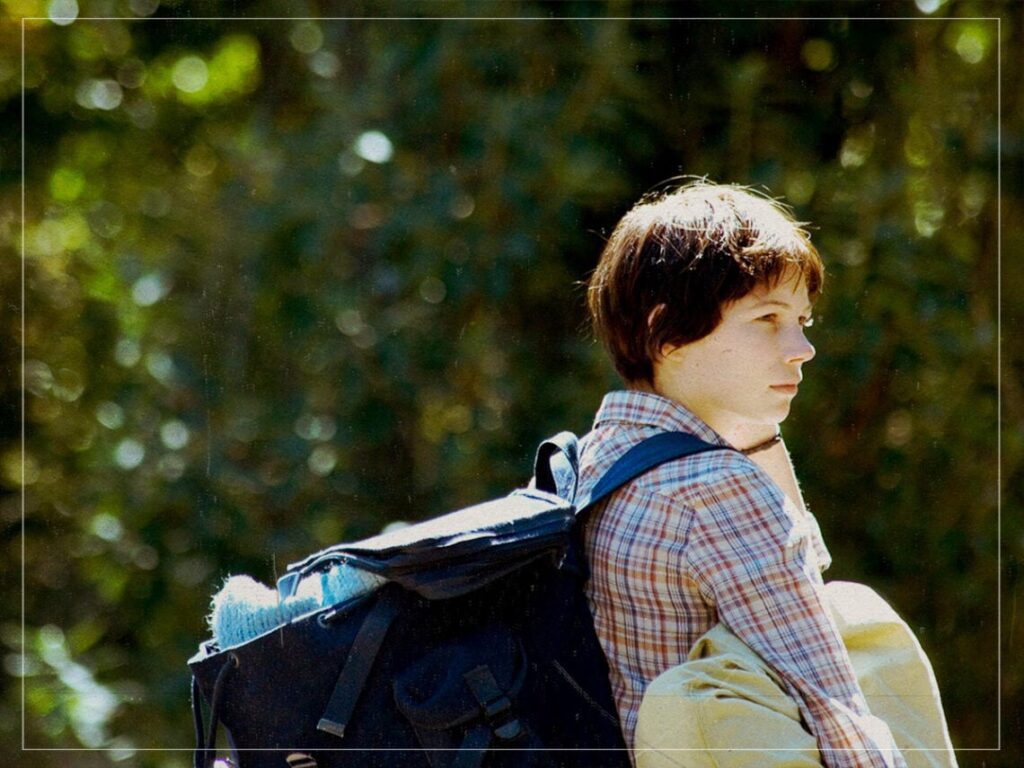‘Wendy and Lucy’: The most important independent movie of the 21st century
 Posted On
Posted On
(Credits: Far Out / MUBI)
Kelly Reichardt has often been described as a poet to people on the margins of society, with her films usually focusing on rural, working-class communities and people who are somewhat isolated in their worlds. There are many filmmakers who amplify the voices of people who don’t need more attention, choosing to share fantastical and escapist stories that disconnect us from reality and affirm the idea that everyday people are not worthy subjects for films.
However, Reichardt advocates for the quiet stories that live all around us, showcasing the extraordinary ordinary people rarely seen on screen but who carry remarkable pains and triumphs that deserve our compassion.
While studios are typically unconcerned with slow cinema and the stories Reichardt wants to share, the director has been able to remain in control of her beautifully empathetic worlds by working independently and avoiding the clutches of Hollywood as a whole, remaining fiercely uncompromised in her vision and refusing to sacrifice this for anyone – her creative integrity is more important. It is because of this that her work is absolutely crucial within the realm of independent filmmaking. It continues to be a haven for those who don’t fit in and a source of hope for a medium that is slowly fading away. However, one of the most influential films within her filmography is her heartbreaking 2008 film, Wendy and Lucy.
Wendy and Lucy is the story of a young woman who is homeless and in search of a better life, drifting around with her dog, Lucy, on her journey to Alaska. However, her plans are abruptly thwarted after her dog goes missing, spending the rest of the film in search of the one comfort and true friend she had.
The film shows someone who is truly trapped by the system, with every plan and semblance of hope being destroyed by a world that doesn’t care for people without a safety net. Wendy tries to survive her day-to-day life with very little, and her existence is made harder by the stark cruelty and lack of kindness shown to her by the people around her. While we do not know the circumstances that led her to be homeless, we do know that Wendy is a victim of a society that blames and criminalises homelessness despite it being very clear that she is trying her best.
Every aspect of her life is at odds with the world around her – she cannot find a job because she doesn’t have an address, she can’t sleep without being disturbed by the police, and she can’t reach safety because she is a woman completely alone. Reichardt highlights the inescapable violence of this cycle, the lack of humanity shown towards those suffering, and the transformative power of compassion and kindness when people are struggling. A small gesture can remind you of your worth and place in this world, even when everyone else makes you feel as though you don’t matter and your problems are a burden to society.
It is a heartbreaking and completely necessary portrait of modern America and the way these capitalist machines destroy humanity. Wendy is just a person who has experienced a bout of bad luck and is doing everything in her power to resurface, and much of that depends on having one animal in her life that treats her as human and loves her regardless. Reichardt’s empathy for this character seeps through every frame, capturing the danger of a world that doesn’t look after its people and providing a voice to those who don’t have one.
But it remains one of the most important independent movies of recent times because of Reichardt’s commitment to the independent medium. By doing this, she can showcase characters that need our attention, bringing compassion back to the cinema and encouraging us to imagine ourselves in someone else’s shoes.
[embedded content]
Related Topics


